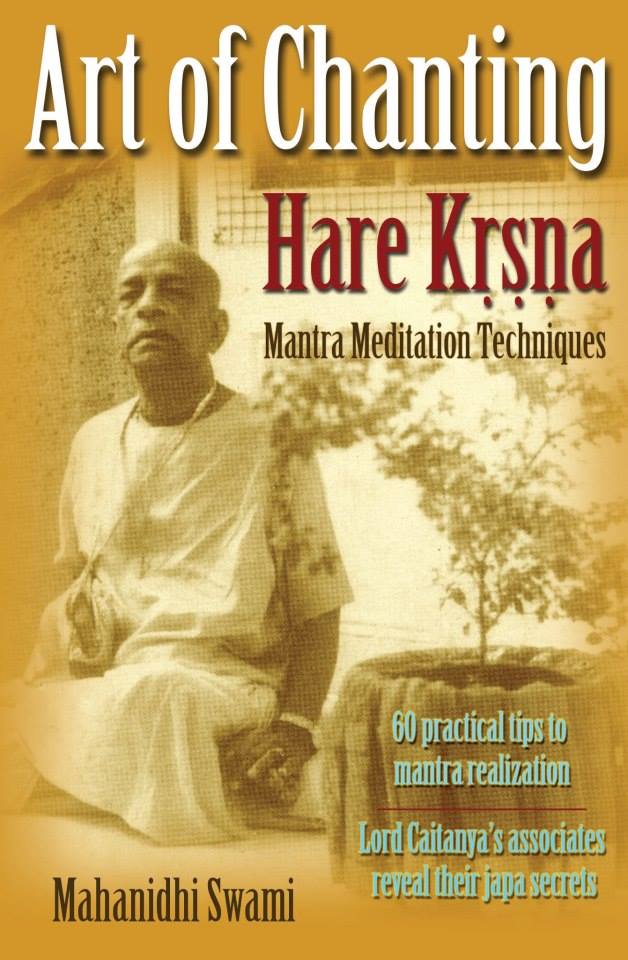Mahanidhi Madan Gopal Das
Harināma-cintāmaṇi explains two categories of holy names: mukhya nāma (primary) and gauṇa nāma (secondary). “The holy names of the Lord that describe His transcendental pastimes are defined as principal names. Chanting these names reveals Kṛṣṇa’s pastimes, gives Kṛṣṇa-prema, and eternal residence in Vṛndāvana. Primary or principal names include Govinda, Gopāla, Rāma, Śrī Nandanandana, Rādhā-nātha, Hari, Yaśomatī Prāṇādhana, Madana-Mohana, Śyāmasundara, Mādhava, Gopīnātha, Vrajagopāla.” (Harinama-Cintamani)
“Primary names are fully transcendental, identical with the svarūpa of the Lord, and remain eternally in the spiritual world. The Lord’s names descend to the material world to destroy the influence of māyā. Secondary names, however, have been introduced from the creation of the material universe. Names such as Śrīsti-karta (creator of the universe), Jagat-pati (controller of the universe) and Paramātmā describe God from the perspective of the conditioned souls and how He relates to them.” (Nama-bhajana)
“Secondary names describe the Lord’s functions and affiliation with His material energy (e.g. Brahman, Paramātmā, Īśvara, Jagannātha, or as the Christians say, creator, maintainer and annihilator.) Such names of the Lord are invoked by karmis and jñānis, not bhaktas. Chanting secondary names of the Lord gives piety, material elevation and salvation. However, kṛṣṇa-prema, the most perfect result of chanting the holy name of the Lord, is attained only by purely chanting Kṛṣṇa’s principal names. This is because the secondary names, although also impregnated with the Lord’s pastime potencies, have it in partial degrees only.” (Harinama-Cintamani)
Why doesn’t chanting of secondary names give prema? Secondary names are distant, incomplete and somewhat impersonal. Hence, they are devoid of the personal expression of Kṛṣṇa’s mercy and love. There is no expression of prema in gauṇa nāma because they have no līlā or pastimes within them.
When one chants mukhya nāma like Govinda or Gopīnātha, and remembers Kṛṣṇa’s loving pastimes with the gopīs, prema will flow into his heart from the prema-sāgara (ocean of divine love) within these names. These names are directly Sri Kṛṣṇa Himself, and as such are endowed with all the potencies found within the Lord’s personal form. Make an experiment comparing mukhya nāma with gauṇa nāma:
If you chant “Paramātmā! Paramātmā! Paramātmā!” nothing will come but thirst and fatigue. But if you chant “Rādhe Rādhe Govinda, Govinda Rādhe! Rādhe Rādhe Govinda, Govinda Rādhe!” you will soon become intoxicated with ambrosial nectar, and completely forget your bodily identity. As Srila Prabhupada once said, “By chanting Hare Kṛṣṇa you will feel invigorated, fresh and enlivened.” Under the powerful influence of the prema-filled primary names of Kṛṣṇa, you may someday pass the entire night crying, laughing, singing, dancing or rolling on the ground like a madman.
Śrīla Prabhupāda confirms this point, “This chanting of Hare Kṛṣṇa. You chant whole day and night, and dance, you’ll never get tired. But take another name. Just after half an hour, finished. It is botheration.” (SPT 2/17/69)
“In the Padyāvalī, there is a statement by some devotees: ‘We shall not care for any outsiders. If they should deride us, we shall still not care for them. We shall simply enjoy the transcendental mellow of chanting Hare Kṛṣṇa, and thus we shall roll on the ground and dance ecstatically. In this way we shall eternally enjoy transcendental bliss.’ ” (Nectar of Devotion)
Five hundred years ago, one spy reported to the Muslim Governor, “All these devotees of Lord Caitanya become like madmen. They simply dance and chant the holy name of Kṛṣṇa. Sometimes they even cry and roll on the ground.” (Cc. Madhya 16.166)
Besides mukhya and gauna-nama, there is another form of nama known as madhurya-nama, which Srila Bhaktivinoda Thakura describes in the following passage:
“The maha-mantra contains the topmost sweet names of the Lord. Provocation for all the rasas mixed with intimate attachment is found in the Hare Kṛṣṇa maha-mantra. There is no mention of the Lord’s prowess (aisvarya) or giving liberation (mukti). This mantra reveals only that a soul has an individual attraction for the Supersoul by the thread of love. These names (Hare, Kṛṣṇa, Rama) are the mantra for those on the path of madhurya-rasa. Constantly chanting and meditating on these names is the best form of worshiping the Supreme Lord.” (Kṛṣṇa-samhita).
An excerpt from the book Art of Chanting.

